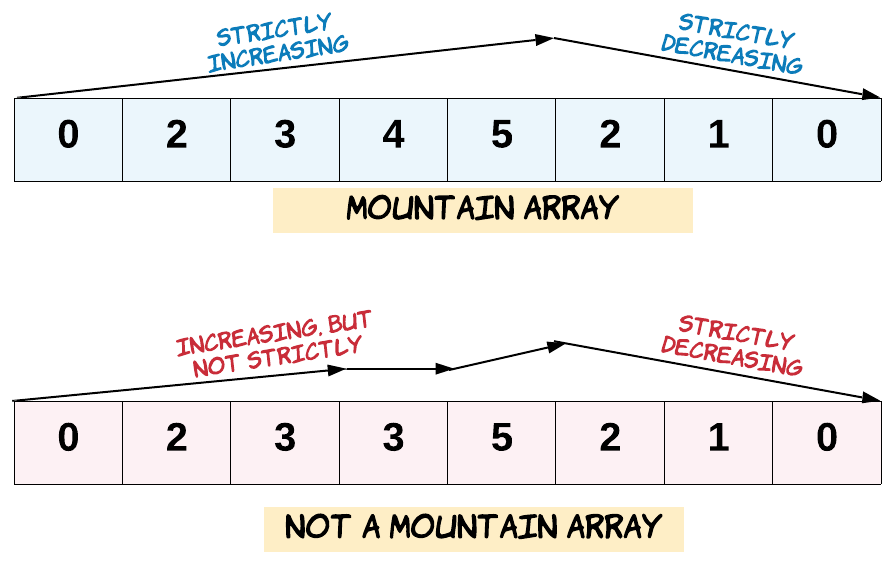941. Valid Mountain Array
Description
Given an array of integers arr, return true if and only if it is a valid mountain array.
Recall that arr is a mountain array if and only if:
arr.length >= 3- There exists some
iwith0 < i < arr.length - 1such that:arr[0] < arr[1] < ... < arr[i - 1] < arr[i]arr[i] > arr[i + 1] > ... > arr[arr.length - 1]
Example 1:
Input: arr = [2,1] Output: false
Example 2:
Input: arr = [3,5,5] Output: false
Example 3:
Input: arr = [0,3,2,1] Output: true
Constraints:
1 <= arr.length <= 1040 <= arr[i] <= 104
Solutions
Solution 1: Two Pointers
First, we check if the length of the array is less than \(3\). If it is, then it definitely is not a mountain array, so we return false directly.
Then, we use a pointer \(i\) to move from the left end of the array to the right, until we find a position \(i\) such that \(arr[i] > arr[i + 1]\). After that, we use a pointer \(j\) to move from the right end of the array to the left, until we find a position \(j\) such that \(arr[j] > arr[j - 1]\). If the condition \(i = j\) is satisfied, then it means that the array \(arr\) is a mountain array.
The time complexity is \(O(n)\), where \(n\) is the length of the array. The space complexity is \(O(1)\).
1 2 3 4 5 6 7 8 9 10 11 | |
1 2 3 4 5 6 7 8 9 10 11 12 13 14 15 16 | |
1 2 3 4 5 6 7 8 9 10 11 12 13 14 15 16 17 | |
1 2 3 4 5 6 7 8 9 10 11 12 13 14 | |
1 2 3 4 5 6 7 8 9 10 11 12 13 14 | |

